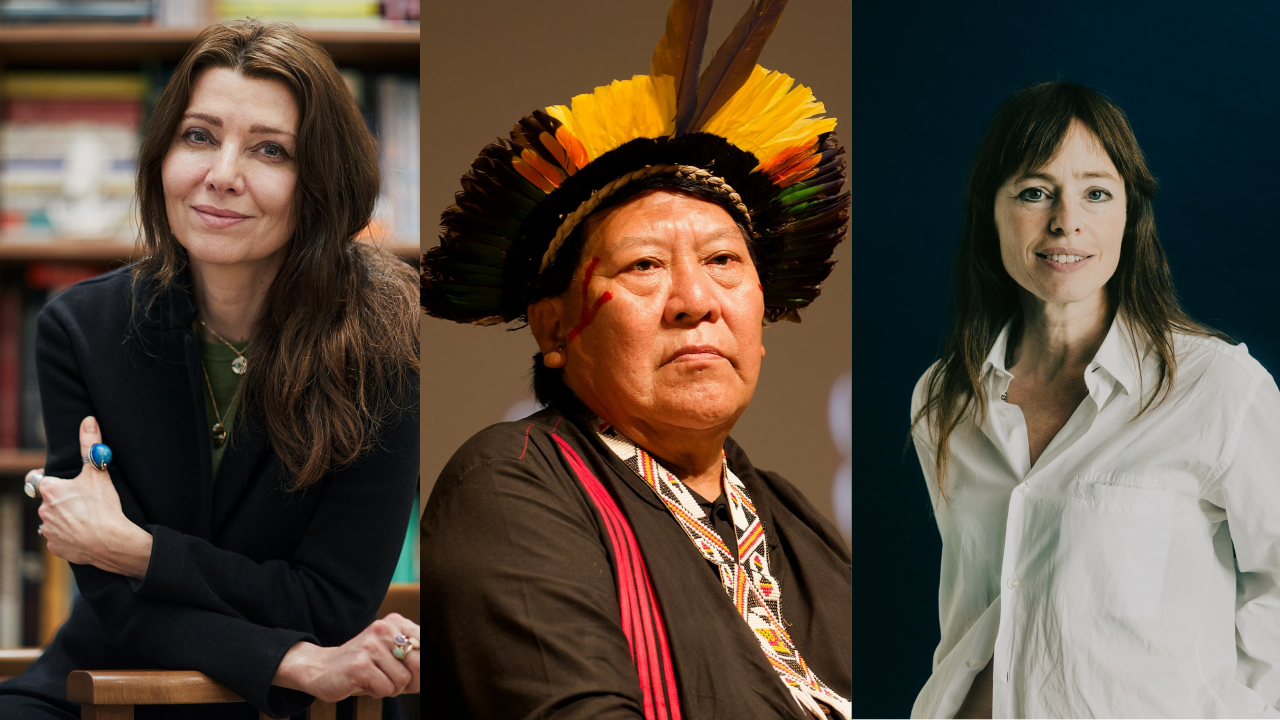Dear Readers,
How is nature writing being transformed by the climate crisis? Is there such a thing as ecological poetics? Why is resignation undemocratic? Climate change—what author Paolo Giordano termed the »pre-traumatic« era at the last ilb—has long since conquered literature. British-Nigerian author and Booker Prize winner Ben Okri calls for a literary urgency. His approach of “existential writing” means writing as if it were the last thing one could do. This might not signal the end, but rather the beginning of a new, contemporary literature.
Many books and events presented at the 24th ilb engage with these issues. Authors, scientists, and journalists come together at the festival and discuss with the audience, addressing not only the challenges we face but also opportunities for action.
Here some highlights of our program on climate and the environment:
A true highlight is the conversation between Davi Kopenawa—shaman and representative of the indigenous Yanomami in Brazil and recipient of the 2019 Right Livelihood Award—and Mirjam Herrmann, a climate activist from the Last Generation. They discuss the climate crisis and ways to break cycles of violence.
Nature Violence | Thu 12 Sep | 20:00
According to sociologist Jens Beckert and historian Hedwig Richter, there are ways out of the ecological disaster, but »the most pressing problem of Western societies is resignation.« Together with atmosphere researcher Tobias Sauter, they offer approaches to democratic climate policies. A cooperation with Einstein Foundation Berlin.
Climate Chance | Sat 14 Sep | 16:00
Elif Shafak is one of the most significant contemporary authors. Her work »The Rivers in the Sky« (new in German, translation by Michaela Grabinger) embraces the poetic idea that water has a memory. A single drop of water connects the narrative strands of three characters, traveling across their disparate geographies and epochs. It recounts the »Epic of Gilgamesh,« the city of Mosul under IS rule, and the climate crisis from the perspective of a hydrologist. The event is moderated by Thomas Böhm, with Angela Winkler reading the German translation.
Elif Shafak: There are Rivers in the Sky | Fri 13 Sep | 20:00
The land of the Sámi has been the fjords, moors and tundra of northern Scandinavia for thousands of years. Timimie Märak uses spoken word art to update oral storytelling traditions and is an activist for indigenous land rights. Linnea Axelsson’s verse novel »Ædnan« tells the story of how two Sámi families fight against colonial trauma and violence against nature for over a century. The authors read and talk about care, non-human agency and social imprinting in the climate crisis.
Sounding Cold Spaces: Sámi Poetics | Tue 10 Sep | 18:00
During the festival, Kenah Cusanit is receiving the German Prize for Nature Writing 2024 for the essay »Senatore Cappelli.« The award ceremony also features readings by fellows of the Stiftung Kunst und Natur, Fiona Sironic and Erik Wunderlich. Claudia Roth, Dirk Messner, Börries von Notz, and Andres Rötzer discuss the relevance of »Nature Writing,« moderated by Vivian Perkovic. A cooperation with the Berlin publishing house Matthes & Seitz, the German Environment Agency, and the Stiftung Kunst und Natur.
German Prize for Nature Writing: Kenah Cusanit | Wed 11 Sep | 18:00
We look forward to welcoming you!

